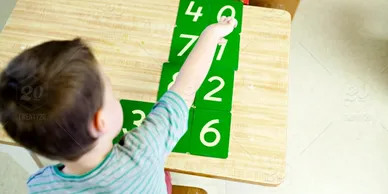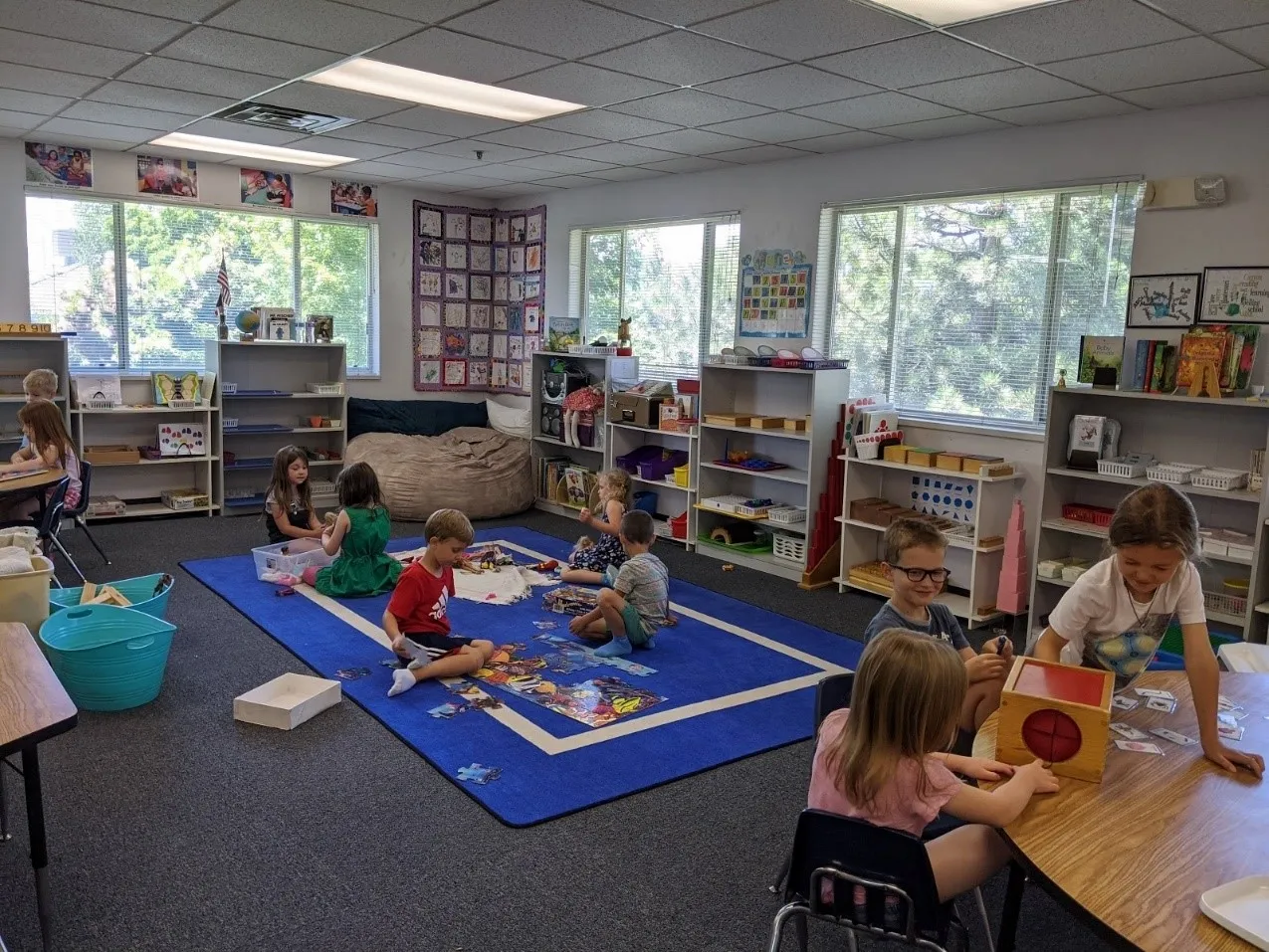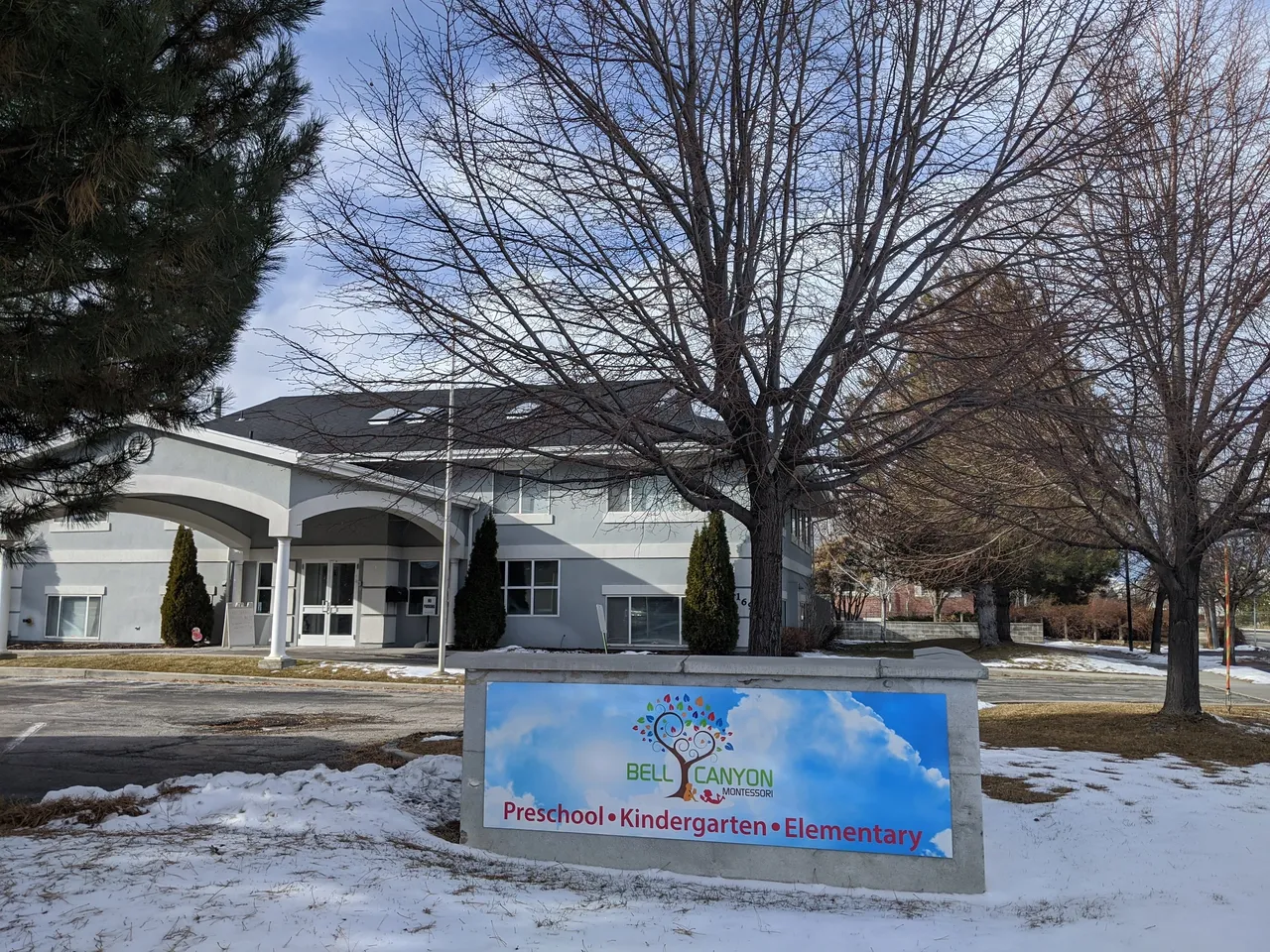Preschool Kindergarten Elementary - Over 35 Years of Montessori Experience!
Our Curriculum

Our program is tailored to meet the needs of each student. We focus on the ages from two to nine. As a Montessori program we are constantly evolving and changing our activities to encourage autonomy and growth in each child. Among the many subjects offered at Bell Canyon Montessori are Math, Computer Basics, Arts & Crafts, Music & Dance, Foreign Languages, Phonetics, Science, and many more.
Preschool

Children ages 3-5 are grasping the same concepts as their peers in a traditional classroom, but the idea is for children to learn individually and at their own pace by moving freely around the room and choosing from a wide range of hands-on, age-appropriate activities that are designed to teach specific skills.
Kindergarten & Elementary

Our objectives are to help the child develop independence as a learner, to have comfortable and productive peer relations, to learn those basic skills and concepts necessary for intellectual development, to be aware of and to organize their environment in terms of his or herself, to establish for the child effective learning strategies and to kindle an excitement for learning.
The Montessori Method

Montessori has two basic principles. First, children and developing adults engage in psychological self-construction by means of interaction with their environments. Second, children, especially under the age of six, have an innate path of psychological development. Based on her observations, Montessori believed that children who are at liberty to choose and act freely within an environment prepared according to her model would act spontaneously for optimal development.
NAMC Certified Teachers

NAMC Certified Teachers at Bell Canyon Montessori. The North American Montessori Center has been training Montessori teachers for over 30 years, and they are the world leader in Montessori education and curriculum resources.
Montessori History

The Montessori Approach to education originated in the early 1900's by Maria Montessori who graduated from medical school in 1896 and was among Italy’s first female physicians. Her educational ideas grew out of her experiences and the “Montessori Method” began to attract the attention of prominent educators, journalists, and public figuresrhas been used for over 100 years in many parts of the world.
Why Choose Bell Canyon Montessori?

The Importance of Routine and Consistency in Montessori
The Importance of Routine and Consistency in Montessori and at Home
-Ally Altuna, Director of Bell Canyon Montessori
"One of the first essentials for any adult who wishes to help small children is to learn to respect the different rhythm of their lives instead of trying to speed it up, in the vain hope of making it synchronize with ours."
—E. M. Standing, Maria Montessori, Her Life and Work
Establishing a consistent, structured routine at school and at home provides a sense of security, allowing the child to feel free in other ways. Even in uncertain times that we might face, with an established routine children will feel empowered to be independent and responsible as they will not be questioning what comes next. This gives them the ability to focus on learning and growing in their own unique ways!
Routine in the classroom
The school day routine in our classrooms at Bell Canyon rarely varies with each passing day. The children know exactly what to expect during the day when they come to school, leaving no time to anticipate surprises. This allows for not only the child to strike a balance for their work day, but also for the teachers to stay organized and give each child their deserved attention since there will be little distraction from the other children knowing what to do and when to do it.
A Montessori classroom is unique in the way that we are able to have “structured freedom.” Essentially, we are able to be dynamic in the way we conduct our lessons and how we approach each child while also providing a structured schedule for everybody to follow.
Here is a simplified example of a typical day at our school:
· Children arrive at school in the morning and gather around the rug for Line Time (group lessons, singing songs, ect.)
· After this time, the work period will commence. There are many activities students will do during this time, including sitting down with their teacher one on one, working in small groups with friends, and working on something independently. Stay tuned for more blog posts about the activities in the Montessori classroom! During the work period, a snack will usually be set out for them to eat if they are hungry.
· After the work period, those children who only stay half the day will go home. Those who stay all day will go to the lunchroom to eat lunch with their teachers and friends.
· After lunch, we have recess outside in our play area.
· When recess is over, the children will come inside and gather for another Line Time.
· The final work period commences and another snack is served. Then it’s time to go home!
Routine at home
Of course, the home environment dynamic is very different from school. It’s usually where children are the most comfortable to play and relax. There are still effective ways to establish consistency in the home, and it doesn’t necessarily require a rigid schedule or strict rules.
Some good examples of implementing routine at home could be: starting a morning or nighttime routine, cooking or eating dinner together as a family, game night, movie night, daily chores or tasks, bedtime stories, or weekend family outings. Trying some of these things to set structure for time at home also gives meaning to the tasks they do, helping them know that their role is important in their family.
Although it can be difficult to start a new routine at any time, in the long term it serves to benefit the child by encouraging healthy habits and providing a sense of security and belonging. When routines are consistent at school and at home, this gives lasting peace to the child. The benefits include but are not limited to emotional growth, improved focus on work, improved self-esteem, and social growth.
Remember to always give children time to adjust to a new routine, whether it is at school or at home. Don’t expect them to be up to speed right away. This period often requires quite a bit of patience, but it’s all worth it once you can see the difference a good routine can make!
Follow Us On Social Media

1690 11400 South
Sandy, Utah 84092
Call or Text: (801)-514-1132
Hours
Monday - Friday: 7:30am - 5:30pm
Saturday - Sunday: Closed
“Free the child’s potential and you will transform him into the world.”
Copyright © Bell Canyon Montessori - All Rights Reserved.







